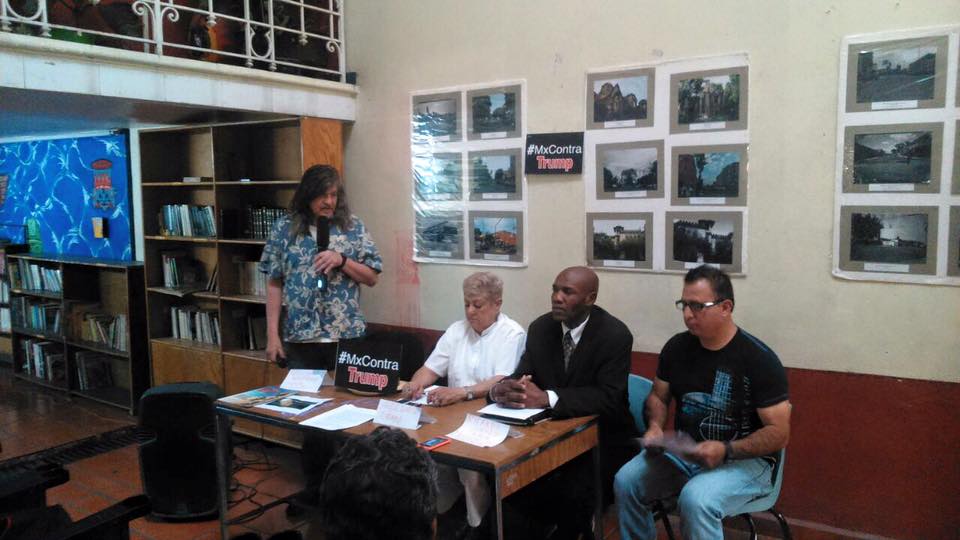Ellas ganan menos, pero les cobran más por sus productos
-Estereotipos, trampas mercadotécnicas e inequidad
Por Leticia Puente Beresford
Nueva York, marzo 28 de 2016.- Bien dice Jessica Valenti: “cuando piensas que la sociedad progresa para lograr la equidad entre los géneros, avances para las mujeres, la tienda de la esquina te dice lo contrario”. Es decir, la situación sigue mal, señala Velenti en The Guardian.
En diciembre del 2015 una investigación del New York City Department of Consumer Affairs encontró, en un estudio realizado tomando como base el precio de 800 productos, desde juguetes hasta artículos personales como champú, que los precios de los mismos productos eran diferentes para hombres y mujeres.
Encontró, por ejemplo, que los rastrillos para hombre costaban 14.99 dólares y que los mismos rastrillos, solo que marcados para mujeres, eran vendidos en 18.49 dólares. Una patineta rosa, radui fkyer, estaba marcada al doble del precio que una roja, versión para “niños”.
En promedio, la investigación halló que los de artículos señalados como “para mujeres” costaban 7 por ciento más en promedio que los artículos considerados “para hombres”.
En Reino Unido, indica el artículo de Valenti, se encontró algo similar en el mes de enero: el mismo producto, solo que con un marcado diferente para indicar si es “para hombre” o “para mujer” tienen una enorme diferencia de precio, de aproximadamente 37 por ciento más caro para ellas.
Productos de belleza, juguetes… todo. Cuestan más incluso los productos para las adultas mayores, ya que los pañales marcados “para ellas” cuestan más caros, lo que constituye un insulto y una agresión a las mujeres, señala Valenti.
En suma, es injusto que las mujeres tengan que pagar más por el mismo producto, mientras los salarios para las mujeres son menores que los de los hombres por trabajo igual.
Pero más allá de esto, es realmente injusto que la disparidad de precios, según el género, haga parecer a las mujeres como frívolas, “gastalonas” o irresponsables desde el punto de vista financiero, ya que siempre gastarán más que los hombres, aunque compren lo mismo.
Valenti recuerda la imagen estereotipada de las mujeres que llegan a su casa, tras una jornada de compras, cargadas de bolsas, estresadas y buscando a su esposo. Señala también la imagen desproporcionada que manejan en los anuncios comerciales, donde se ve a las mujeres ávidas de productos, sobre todo de belleza, para no sentirse feas. O comprado cosas que no necesitan, por el "vicio" de "comprar".
Los precios diferenciados a partir de que son considerados “para mujeres” o “para hombres” son evidente expresión de la inequidad, ya que no sólo se crean estos estereotipos de la mujer que gasta irresponsablemente y es presa fácil de la publicidad, sino que además esa diferencia en precios lesiona su economía.
Deberían de ser hora, señala Valenti, de que las tiendas de ropa y farmacias vendan productos para hombres que sean más caros que los destinados a la población femenina. Y, señala irónicamente, las mujeres de Estados Unidos estarán muy agradecidas si, por ejemplo, dejan de existir los sprays "femeninos".
Más aún, señala Valenti, los productos para el control de la natalidad y para prevenir infecciones de transmisión sexual resultan más caros para las mujeres. Los anticonceptivos hormonales para las ellas resultan mucho más caros que los condones. El costo de la píldora, cuando no se tiene seguro médico, es tres veces mayor que el costo de usar condones de por vida.
Sucede también con la ropa interior: para las mujeres comparar lencería es mucho más caro que para los hombres comprar un bóxer. Los calzones para hombre deberían de costar 50 dólares el par, dice, si se siguiera la lógica de precios de las prendas femeninas.
De ninguna manera se trata de atacar la situación de los hombres, de hacer algo contra ellos, sino de proponer que los productos no tengan tanta diferencia de precio según el género al que van dirigidos, porque esto constituye discriminación y en ello ayuda la publicidad engañosa que hace suponer que los productos son muy diferentes.
Un rastrillo es un rastrillo, una pluma es una pluma, no importa quién la use, señala Valenti. No tienen por qué tener un precio tan diferente. Ojalá y los fabricantes y los distribuidores lo entendieran.
XXXXXXXXXXXXXXXX
Mexicano en huelga de hambre por los 43 estudiantes continuará su protesta así sea arrestado por la Policía de Nueva York.
Leobardo Santillán, mexicano originario de la sierra otomí-tepehua, inició una huelga de hambre de 10 días en frente de las Naciones Unidas en Nueva York desde el lunes pasado; sin embargo al estar él situado en un parque, el Departamento de Policía de Nueva York (NYPD) argumenta que la ley no le permite estar ahí por la noches. Hoy le fue dado un ultimátum a Santillán: si no se retira, será arrestado por lo que el activista ha decidido dejarse arrestar y continuar su huelga de hambre hasta ser liberado. La Policía de Nueva York le dio hoy hasta las 11:00pm, hora local, para retirarse.
Santillán reside actualmente en Houston, Texas. Esta huelga de hambre frente a la sede de las Naciones Unidas es la cuarta que realiza en demanda de la presentación con vida de los 43 estudiantes desaparecidos de la Escuela Normal Rural de Ayotzinapa. También demanda juicio penal al Presidente de México, Enrique Peña Nieto en una corte internacional por crímenes de lesa humanidad y la permanencia de un presidente interino hasta 2018; cárcel para gobernadores, militares, policías o cualquier miembro de las fuerzas de seguridad por actos de violación a derechos humanos y actos de corrupción y que la sede de las Naciones Unidas cambie de país ya que Estados Unidos apoya al gobierno corrupto y autoritario de México a través de la Iniciativa Mérida.



